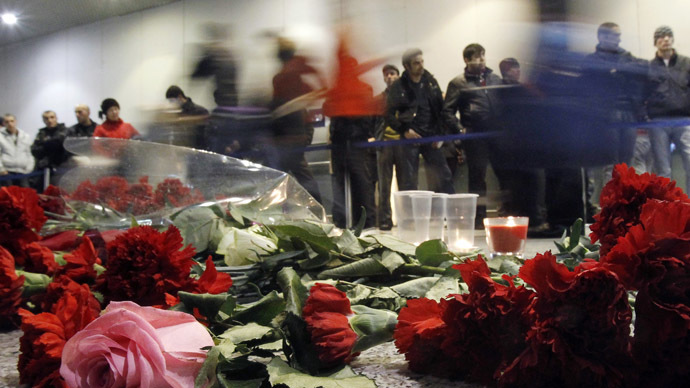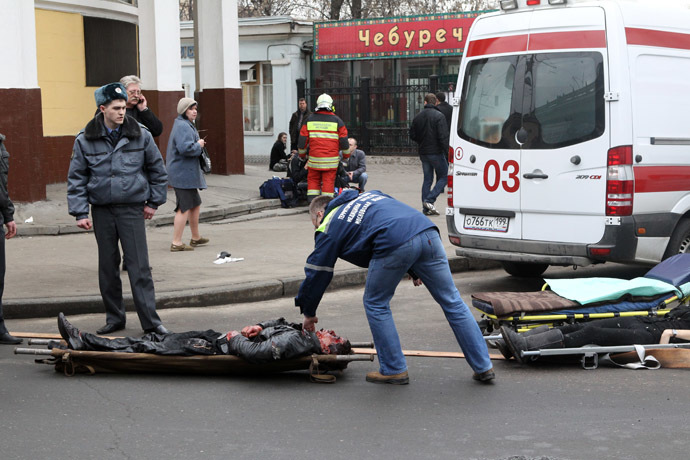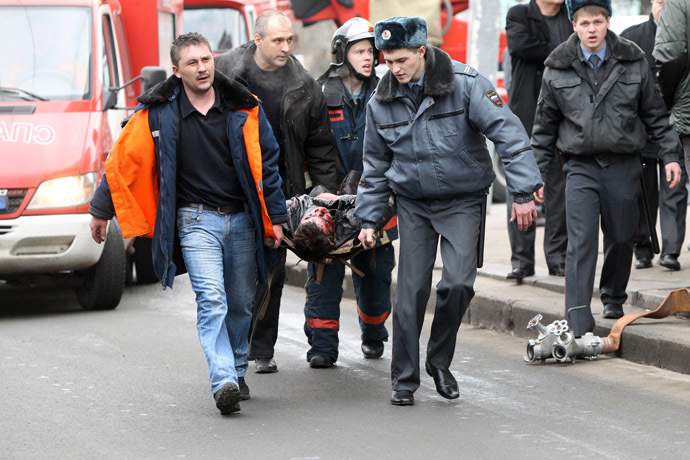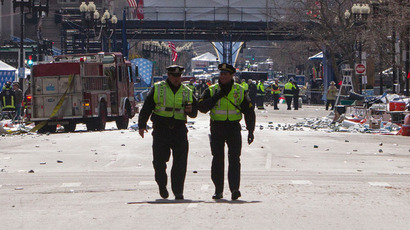New bill forces terrorists’ relatives to pay compensation for attacks

The State Duma has approved the first reading of a bill that allows the relatives of terrorists to pay compensation for the damage inflicted during their attacks.
The bill consists of a set of amendments to the Russian Criminal Code and the Law on Terrorism. Apart from making terrorists and their relatives pay damages, including the moral damages, resulting from terrorist attacks, it simplifies the legal procedures allowing punishment for terrorists’ recruiting and training as well as for forming terrorist groups.
The current draft of the document also suggests fining people close to the terrorists, such as spouses and in-laws as well as “people whose life, health and wellbeing the attacker values because of the nature of their relationship.” However, applying this rather broad definition will only be possible if law enforcers have sufficient proof the property that would be used for compensations was itself received in the course of terrorist activities.
For this, the Federal Security Service (FSB) is given powers to demand an explanation over the sources of assets belonging to the terrorists’ families. If there is not sufficient proof the sources are legal, prosecutors and the courts have the right to seize the property and sell it. One of the main sponsors of the bill, FSB deputy director Yuri Gorbunov explained the details to Lower House MPs on Tuesday.
Currently the victims of terrorist attacks can only sue the immediate perpetrators for damages. Partial compensation is also offered by the state.
The head of the State Duma Security Committee, Irina Yarovaya, said the main objective of the new bill was to make terrorism “unprofitable and unappealing” adding that family ties were very strong among those who committed such crimes and could be used as leverage.
Yarovaya added that similar laws are currently in force in Germany, France and China and that they have proved their effectiveness.

According to the current draft of amendments to the Criminal Code undergoing terrorist training must be punished with five to ten years in prison together with a fine of 500,000 roubles (over $150,000). The crime of organizing a terrorist group carries from ten to fifteen years in prison and a fine of 1 million roubles (about $300,000). Presently Russian law also has punishment for terrorism, but for it to be applied the group must be recognized as such by the Supreme Court. The new amendments simplify and quicken the procedure, Gorbunov said.
However, the amendment provides that people who voluntarily quit the ranks of terrorist groups must not be prosecuted if during their participation in the group they have not committed any crime.
The fresh counterterrorist bill was submitted to the Parliament on September 27 on the initiative of President Putin.















